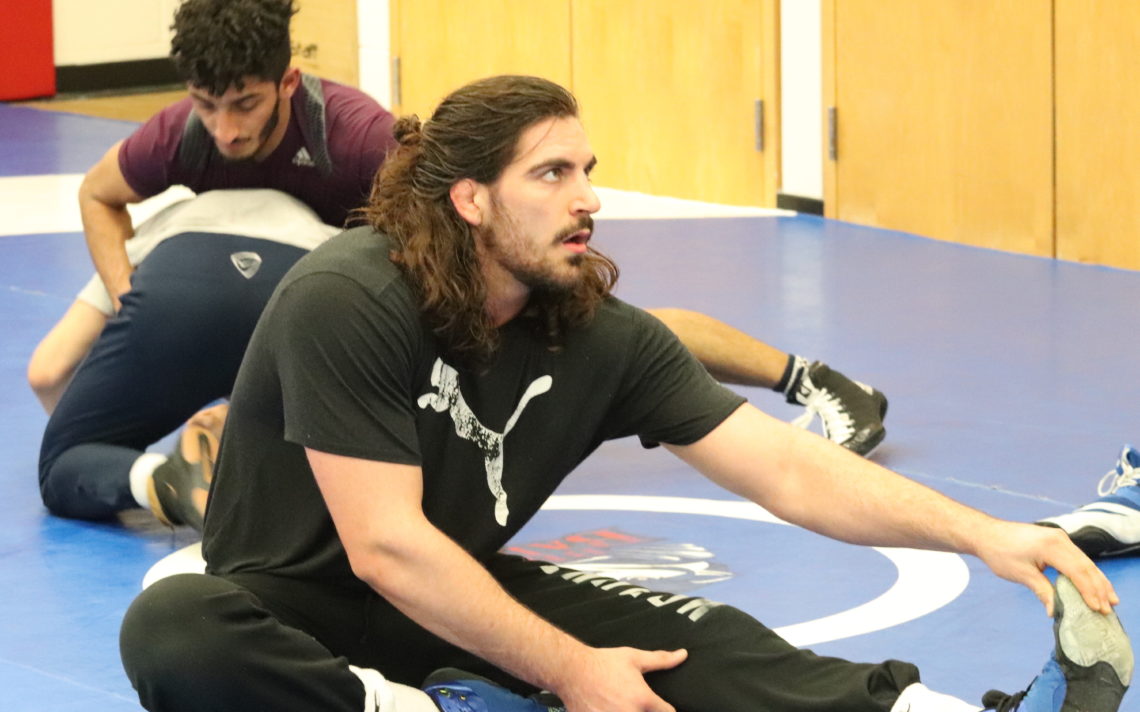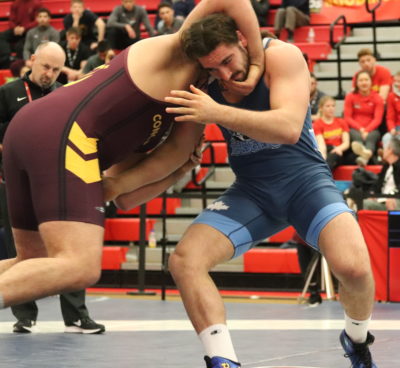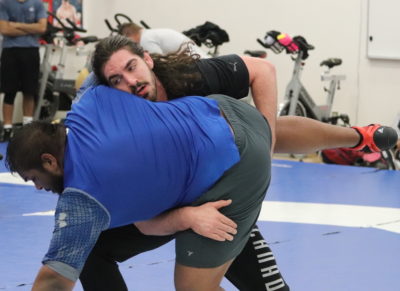
DesChatelets earns NextGen status
A breakout performance at last December’s Olympic trials has resulted in Richard DesChatelets Jr. being selected to Wrestling Canada’s NextGen program.
The 21-year-old Niagara Falls native it made it to the semifinals of the trials before losing a close match to Nishan Randhawa of Burnaby Mountain Wrestling Club, the eventual runner-up.
“I had never gotten so close in score with Nishan and the match was basically a flip of the coin to see who would win,” DesChatelets said. “Unfortunately, I didn’t come out on top but I will keep practising, hopefully fix the mistakes I made and do better the next time.”
The NextGen Program is for wrestlers trending five to eight years out from an Olympic podium. In addition to enhanced funding, training and more competitive opportunities, the program helps with nutrition, strength and conditioning, physiology, sport psychology and health and wellness.

Brock head coach Marty Calder describes DesChatelets as an exciting new prospect for Canada.
“He has a great passion for working hard and improving,” he said. “I see him as an athlete who will produce results for Canada in the years to come.”
Other Brock wrestlers selected for the program were Hannah Taylor at the Tier 1 level and Shauna Kuebeck and Ty Bridgwater at the Tier 2 level. DesChatelets, also selected at the Tier 2 level, feels he has made significant strides in his game this season.
“I think the major difference is more in mental preparation,” he said. “I am getting better at preparing myself for the tournaments.”
The former Canadian junior champion describes the mental aspect as one of the hardest parts of wrestling.
“It’s difficult to come into a tournament and be ready mentally,” he said. “You can feel amazing physically, but if you are off mentally it can ruin everything.
“I am starting to figure out a good routine on what to do to get ready before my matches so I am able to perform the best that I can.”
The three-time USPORTS silver medalist — twice at 120 kilograms and once at 100 kilograms — feels the next step in his progression is to be able to analyze everything his opponents are doing and devise a game plan.
“The two people above me (in the weight class) are older than me and they have more experience than I do,” he said. “They have seen what I do and they have some really good moves. I can’t take that away from them but I need to be able to learn how to not get them done against me and even learn how to do them.”

All of the above will come with experience.
“You can be one of the most gifted people ever but it goes such a long way if someone has that experience on you,” DesChatelets said.
Many wrestlers don’t peak until their mid-or late-twenties and the Brock business administration student knows has to be patient.
“It is when their abilities are at the highest and physically they are not broken yet,” he said.
Like all wrestlers, DesChatelets’ short-term goals are on hold while he awaits the end of the COVID-19 pandemic.
“I am just trying to train as much as I possibly can and make everything I do a kind of a workout. Of course, it is also about being safe.”
His long-term goals are in keeping with NextGen’s identification as a wrestler trending five to eight years out from an Olympic podium.
“Obviously I want to go to the Olympics in four years — hopefully they don’t postpone that one as well — and not just go to the Olympics,” DesChatelets said. “I want to be able to make it to the podium. It has always been a dream of mine to do that.”
He is looking forward to the additional opportunities he will receive as a NextGen athlete.
“If you know me, I am not going to say no to any opportunities to get better.”
He also won’t say no to the additional funding he will receive.
“Money isn’t extra motivation but it does help you out a lot,” DesChatelets said. “You want to buy the right supplements and the right food and it allows you to make your schedule more flexible so you can focus on wrestling. If I am not carded and not getting any money, I would have to work on top of wrestling.”

























